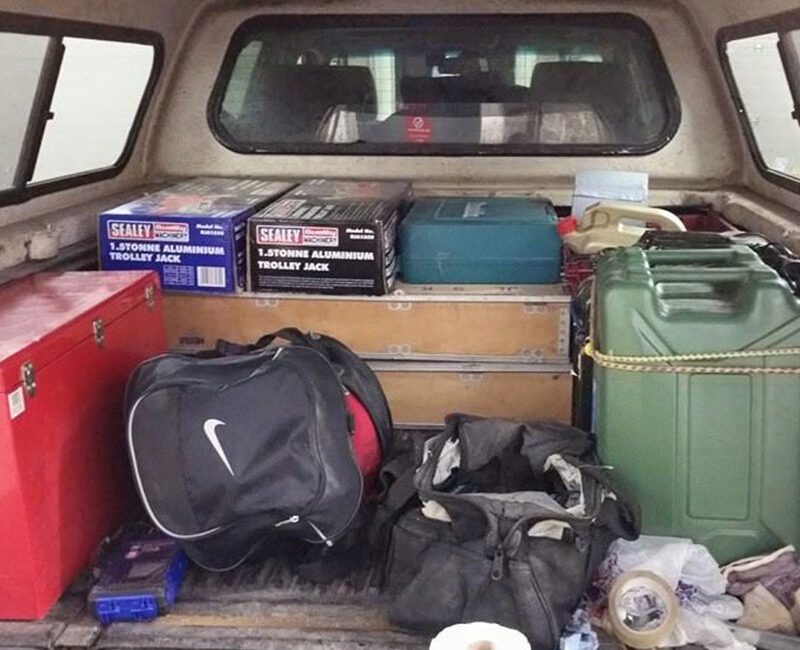The Essential Track Day Checklist: Your Guide to Being Well-Prepared
A successful track day is as much about preparation as it is about driving. Whether you’re a seasoned track enthusiast or a novice, having the right equipment and essentials can make a significant difference to your track day experience. This comprehensive checklist covers everything you need to bring for a smooth, safe, and enjoyable day at the track.
Vehicle Preparation
- Pre-Track Vehicle Inspection: Ensure your car is track-ready with a thorough inspection. Check for any fluid leaks, tire wear, brake condition, and ensure all lights are working.
- Tire Pressure Gauge and Pump: Tire pressures are crucial for handling and safety. Bring a reliable gauge and a portable pump or compressor.
- Brake Fluid and Engine Oil: High temperatures on track can affect fluid levels. Bring extra brake fluid and engine oil suitable for your car.
- Tool Kit: Pack a basic toolkit including wrenches, screwdrivers, pliers, duct tape, and zip ties for any quick fixes.
- Wheel Chocks and Jack: For any tire or brake-related maintenance at the track.
Safety Gear
- Helmet: A must-have for most track days. Ensure it meets the safety standards required by the track.
- Racing Gloves and Boots: These improve grip and control, enhancing your driving experience.
- Fire Extinguisher: A small, car-specific fire extinguisher can be a lifesaver in emergencies.
- Driving Suit: While not always mandatory, a driving suit provides extra protection.
- Neck Support: Especially important if you’re driving a high-performance vehicle.
Comfort and Convenience
- Food and Water: Track days can be long and physically demanding. Stay hydrated and bring snacks or a packed lunch.
- Portable Chairs and Shelter: For comfort during downtime, especially if you’re at an outdoor track with limited facilities.
- Weather-Appropriate Clothing: Be prepared for all weather conditions. Bring rain gear, a hat, sunscreen, and layers for warmth.
- First-Aid Kit: Always a good idea for any minor injuries or headaches.
- Camera or GoPro: To record your laps for analysis or memories.
Documentation and Money
- Driving Licence: Required for registration at most track day events.
- Track Day Confirmation and Insurance Documents: Have copies of your booking confirmation and any track day insurance documents.
- Cash and Card: For any on-site expenses like food, fuel, or last-minute supplies.
Optional Extras
- Lap Timer or Data Logger: For those looking to analyse and improve their performance.
- Tire Warmers: Useful in cooler conditions to keep tires at optimum temperature.
- Fuel Can: If you’re driving a high-performance vehicle, extra fuel can be handy.
- Battery Charger or Jumper Cables: In case your car or another participant’s car needs a jump start.
FAQs for Track Day Preparation
Q: How do I know if my helmet is suitable for track use? A: Check the track’s requirements. Most require helmets to be Snell or FIA approved.
Q: Can I rent safety gear at the track? A: Some tracks offer rental services for helmets and other safety equipment, but it’s best to check in advance.
Q: Should I bring spare parts for my car? A: It’s wise to bring essential spares like belts, hoses, and fuses, especially if you’re driving an older or heavily modified car.
Q: What should I do if I’m unsure about my car’s track readiness? A: Consider having your vehicle inspected by a professional mechanic experienced in preparing cars for track use.
Q: Is it necessary to have track day insurance? A: It’s not mandatory but highly recommended. Regular car insurance policies often do not cover track day incidents.
Being well-prepared can greatly enhance your track day experience, ensuring you spend maximum time on the track and minimal time dealing with unexpected issues. Remember, it’s not just about having the right gear, but also about being mentally and physically prepared for the demands of high-speed track driving.

